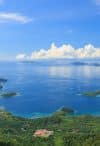
The Defense of Nature: Resisting the Financializaton of the Earth
The rapid financialization of nature is promoting a Great Expropriation of the global commons and the dispossession of humanity on an unprecedented scale. | more…

The rapid financialization of nature is promoting a Great Expropriation of the global commons and the dispossession of humanity on an unprecedented scale. | more…
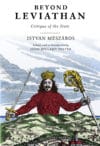
In Beyond Leviathan: Critique of the State, István Mészáros closes a trilogy that was first outlined in Marx’s Theory of Alienation, later greatly developed in Beyond Capital, and is now concluded in this new work. Throughout his immensely rich work, Mészáros developed, amid many original formulations, an increasingly relevant concept: capital’s order of social metabolic reproduction. | more…
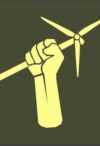
We should avoid offering a fatalistic worldview. In fact, the environmental movement in general and ecosocialism in particular are all about combating the current trend toward ecological destruction. Climate change is now “code red for humanity.” This is not a doomsday forecast but a call to action. | more…

El Maizal’s flag-waving communards are rapidly breaking down skepticism about the viability of leader Ángel Prado’s election campaign, for it is undeniable that they are among the reddest elements in the so-called Pink Tide. | more…
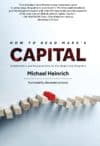
With the recent revival of Karl Marx’s theory, a general interest in reading Capital has also increased. But Capital—Marx’s foundational nineteenth-century work on political economy—is by no means considered an easily understood text. Central concepts, such as abstract labor, the value-form, or the fetishism of commodities, can seem opaque to us as first-time readers, and the prospect of comprehending Marx’s thought can be truly daunting. Until, that is, we pick up Michael Heinrich’s How to Read Marx’s Capital. | more…
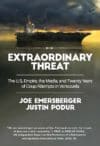
Forthcoming in June 2021
In March 2015, President Obama initiated sanctions against Venezuela, declaring a “national emergency with respect to the unusual and extraordinary threat to the national security and foreign policy of the United States posed by the situation in Venezuela.” Each year, the U.S. administration has repeated this claim. But, as Joe Emersberger and Justin Podur ague in their timely book, Extraordinary Threat, the opposite is true: It is the U.S. policy of regime change in Venezuela that constitutes an “extraordinary threat” to Venezuelans. Tens of thousands of Venezuelans continue to die because of these ever-tightening U.S. sanctions, denying people daily food, medicine, and fuel. On top of this, Venezuela has, since 2002, been subjected to repeated coup attempts by U.S.-backed forces. In Extraordinary Threat, Emersberger and Podur tell the story of six coup attempts against Venezuela. | more…
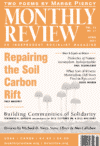
Many factors are involved in COVID-19 mortality rates. Nevertheless, it is clear that the more socialist-oriented countries—by prioritizing social needs and public health, plus aggressive testing, tracing, and enlisting the aid of their populations—have generally been more effective in limiting the effects of the disease on their societies. The failure of the wealthier capitalist countries to do so is largely a result of their prioritization of profits over people. | more…
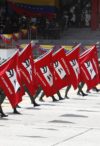
In Socialist Practice, a collection of essays on leftist theory and experiences, Victor Wallis adheres to the view that the achievement of socialism is a drawn out, nonlinear process consisting of episodes that in many cases have a mixed impact on the revolutionary cause. He analyzes several, ranging from the seven decades of Soviet rule to the New Left of the 1960s. His main thesis is that over the last century pure socialism has never existed and that on all fronts socialist movements and governments have contained elements of the old—namely, capitalism. | more…

In December 2002, Isabel Crook, a Canadian anthropologist who had spent most of her life in China and a longtime friend and supporter of Monthly Review, wrote a letter to the MR editors questioning the critical nature of coverage of China’s capitalist road to socialism since the ascendance of Deng Xiaoping in the late 1970s. This short exchange with Harry Magdoff reflects the complex ways in which dedicated socialists sought to address changes in China and the clarity of the ideas expressed. | more…

Alexander Bogdanov’s Red Star, published in 1908, was an attempt to reenergize the dejected revolutionaries whose efforts had been crushed during the 1905 Russian Revolution. The protagonist, Leonid, is a Russian revolutionary chosen, in the midst of the revolution, by the Martian expedition to visit their planet and learn about the centuries-old advanced form of communism there. Since the triumph of communism in Russia was the cause to which Leonid had decided to devote his life, he agrees to visit Mars so that he can absorb their ideas and principles. | more…

In an interview with Alejandro Pedregal, John Bellamy Foster tells us about the paths great ecosocialist thinkers traveled, the most prominent debates in current Marxist ecological thought, and the urgent need for a project that transcends the conditions that threaten the existence of our planet today. | more…

In his book Chicano Communists and the Struggle for Social Justice, Enrique M. Buelna examines the life of Ralph Cuarón, a Mexican-American or Chicano seaman, furniture maker, father, husband, and lifelong activist who joined the Communist Party at age 19 during the Second World War. The Communist Party, however, largely ignored Mexican workers and local members were not pleased with his organizing of that segment of the working class. In the early twenty-first century, the Mexican question remained, although it became known as the “Latino question” after considerable immigration from Central America in the 1980s and ’90s. In their book The Latino Question: Politics, Labouring Classes, and the Next Left, Armando Ibarra, Alfredo Carlos, and Rodolfo D. Torres deconstruct the word Latino, arguing that it homogenizes an extremely diverse population. | more…
Notifications